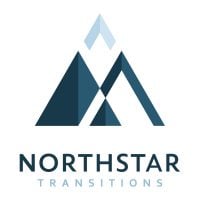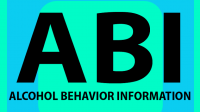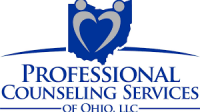
Professional Counseling Services
Drug Rehab Center in Denver, Colorado
- Opioid Addiction
- Dual Diagnosis
- Drug Addiction
- Alcoholism
Professional Counseling Services in Denver offers addiction and mental health services personalized to each patient’s needs and preferences, including individual and group counseling, medication management, trauma therapy, and relapse prevention strategies.
About This Colorado Facility
Professional Counseling Services in Denver, Colorado offers comprehensive addiction and mental health services to individuals of all ages, as well as couples and families. Led by a team of experts, the facility provides evidence-based treatment, which is personalized to each patient’s needs and preferences. This includes individual and group counseling, as well as medication management, trauma therapy, and relapse prevention strategies.
Professional Counseling Services offers comprehensive addiction services for individuals struggling with substance abuse. They utilize the most current and up to date strategies and techniques to identify an individual's needs, develop an individualized treatment plan and help create safe and sober living goals. They offer medical assessments, individualized counseling and treatment planning, group and family counseling, medication assisted treatment, and pharmacological management. They also provide aftercare services and recovery support services, as well as individual and family therapy.
Professional Counseling Services is accredited by the Joint Commission and the Colorado Department of Health and Environment. They also have licenses from the Division of Professional Licensure, Substance Abuse and Mental Health Services, and the Colorado Department of Regulatory Agencies. The team is certified in the American Society of Addiction Medicine criteria and Screening, Brief Intervention, and Referral to Treatment. They have also been awarded the Colorado Department of Human Services, Substance Abuse and Mental Health Division and Substance Abuse Professional Certification Board awards.
Genders
Ages
Modality
Additional
Conditions and Issues Treated
Opioid addiction treatment should be done in a medically supervised drug rehab. Opioid addiction treatment will include detoxification and drug rehab counseling to help both the user and their loved ones learn how to live a successful sober lifestyle. Methadone, buprenorphine, and naltrexone are three medications that can help treat opioid addiction. Individual drug rehab counseling sessions can be helpful to discuss any questions or concerns with the drug treatment program.
Levels of Care Offered at Professional Counseling Services
This center offers a variety of custom treatment tailored to individual recovery. Currently available are Aftercare Support, Drug Rehab, Outpatient, with additional therapies available as listed below.
Individuals struggling with drug addictions can get help from several treatment options, including inpatient and outpatient programs. Outpatient drug treatment programs can also provide patients with different levels of care, usually depending on the patient’s degree of addiction.
At an outpatient program in Denver, a patient will attend a recovery program during the day and return home in the evening. Suppose a patient is struggling with drug addiction. In that case, an outpatient program can serve as an effective transition point during the recovery process.
Aftercare is a part of drug rehabilitation. It is also known as “post-treatment support.” Aftercare programs are available for addicts after they complete drug rehab. It is often the final step in the recovery process. The goal of aftercare is to ensure that addicts maintain their achievements in rehab and do not relapse. Professionals generally provide aftercare (including addiction therapists, physicians, social workers, psychologists) and involve individual and group therapy sessions.
Therapies & Programs
Individual therapy is a critical component of addiction recovery. It allows the patients to go deep into their core issues and discover how to handle those problems better. Therapy can be conducted in individual sessions as well as group settings. In individual therapy for addiction, the patient meets with their therapist one-on-one to focus on the underlying issues. This allows patients to open up and discuss personal topics they may not feel comfortable discussing in a group setting. This type of therapy can help develop solutions specific to each patient, which helps speed up the recovery process.
Couples therapy is beneficial for couples in which at least one partner has a substance use disorder. This type of therapy can help partners improve communication skills, which is an important factor in a healthy relationship. It can also help partners better understand one another so they have a greater understanding of how the other partner may be feeling.
Benefits of couples therapy include:
- Improvement in communication skills
- Increased understanding of the dynamics within a relationship
- Increased sense of support and trust in the relationship
- Better teamwork between partners/increased willingness to listen and work together
- Enhanced tolerance of each other’s shortcomings
- Improved ability to have open, honest communication with each other
Family therapy is a crucial part of drug treatment and getting sober. It is one of the most effective ways to help addicts stay on the path to long-term sobriety. When a drug addict decides that they want to try and get sober, it takes the support of every person they love to succeed. It can be incredibly difficult for loved ones to watch an addict go through the pain and suffering of withdrawal, but by being there with them and supporting them, they can help to make sure that the addiction never returns.
One of the most important parts of family therapy is the relapse prevention plan. During treatment, therapists and doctors will often sit down with the addict and their family to develop a plan in case the addict ever feels like they want to use again. This plan should involve steps the addict and family can take together to prevent them from relapsing in the future. An addict’s family can play a vital part in helping them to avoid relapse because they can spot the warning signs and help them get back on track before it becomes too much of a problem.
Group therapy helps prevent addicts from feeling isolated or unique in their situation by offering a sense of comfort and fellowship. It also creates a forum for addicts to build their support systems and learn from each other. The group therapy sessions at Professional Counseling Services occur in a group setting rather than one-on-one to create a safer, controlled environment where addicts feel comfortable.
Trauma therapy helps people dealing with addiction by allowing them to confront the traumas of their past and move past them. It is important to note that trauma therapy should not be confused with PTSD (post-traumatic stress disorder) Rather, it is used to treat the effects of trauma, which are often at the root of addiction.
Eye movement desensitization and reprocessing is a form of psychotherapy that allows individuals to heal from the emotional distress that is the result of disturbing life experiences. It uses alternating bilateral stimulation the therapeutic process where the patient moves his/her eyes back and forth while recalling distressing thoughts or feelings can be facilitated by this eye-movement technique.
- It is effective to treat a range of different problems such as: anxiety, depression and grief.
- short term therapy (8-16 sessions) and normally 10 sessions is maximum treatment time required for treating emotional problems.
- has been found to be as helpful as cognitive behavioural therapy or exposure therapy.
Payment Options Accepted
For specific insurance or payment methods please contact us.
Additional Details
Specifics, location, and helpful extra information.
Denver, Colorado 80222 Phone Number(303) 691-0225 Meta DetailsUpdated November 25, 2023
Staff Verified
Patient Reviews
There are no reviews yet. Be the first one to write one.
Denver, Colorado Addiction Information
The Centennial State has slipped to a ranking of 12th in the country for drug abuse. Each year around 24% of the state's population uses illegal drugs while nearly 5% of its population abuses alcohol. Substance-related deaths in Colorado were responsible for 15.12% between 2008 and 2017. Fortunately, Colorado drug and alcohol addiction treatment are available to help a person overcome addiction.
Drug addiction in Denver, Colorado, is quite serious. In 2012, there were 974 drug overdose fatalities in the area, which has likely only gone up in recent years. The city has an estimated 34,000 marijuana users reporting past-month usage in 2016. The most common drugs abused are methamphetamine, heroin, and marijuana. Some popular treatment options include inpatient rehab, outpatient rehab, and detoxification programs.
Treatment in Nearby Cities
- Evergreen, CO (20.5 mi.)
- Crawford, CO (158.4 mi.)
- Greeley, CO (52.6 mi.)
- Edgewater, CO (8.2 mi.)
- Lafayette, CO (22.9 mi.)
Centers near Professional Counseling Services
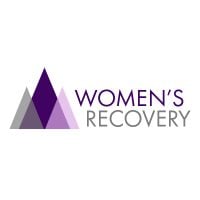
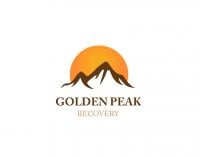

The facility name, logo and brand are the property and registered trademarks of Professional Counseling Services, and are being used for identification and informational purposes only. Use of these names, logos and brands shall not imply endorsement. RehabNow.org is not affiliated with or sponsored by Professional Counseling Services.

